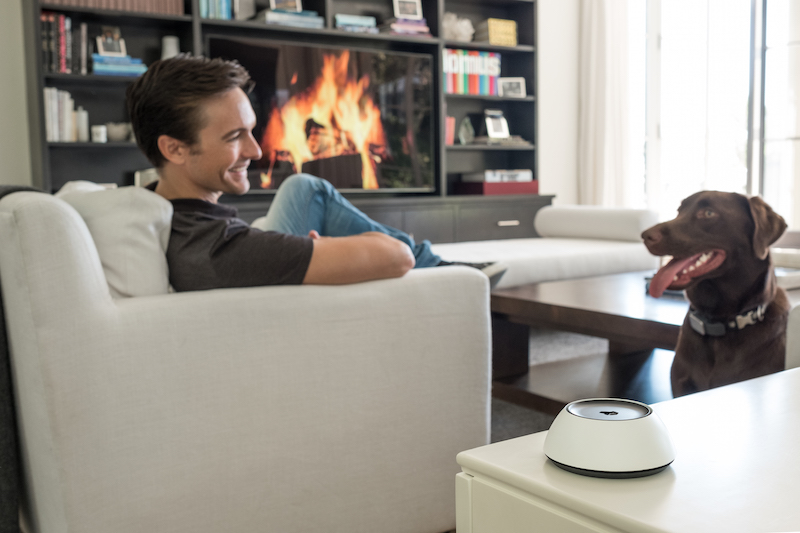People that use Alexa devices as the primary user interface to control their smart home should be concerned about the news coming out of Amazon. CNBC reported that Amazon would be cutting approximately 18,000 people. While many of these job losses are said to come from the company’s devices organization, Dave Limp, the head of Amazon’s hardware division, said that the company remains committed to Alexa.
ARS Technica reported that Amazon Alexa was on pace to lose $10 billion in 2022. And, an article in TheStreet is titled, “Amazon Needs to Kill Alexa, Maybe Exit Echo Devices.” Then, an article in Gizmodo quotes a Consumer Intelligence Research Partners (CIRP) report that Amazon Prime subscriptions are in decline. Finally, a BBC News article titled, “Have we fallen out of love with voice assistants?” talks about how people are, more and more, finding the interactions they have with voice assistants to be annoying instead of helpful.
In addition, a story that hasn’t made the news is how post office issues in rural America could also start to impact Amazon. Amazon Prime has become a mainstay in rural America where access to large retailers, that offer lower prices, can be limited. Prime shipping has provided people living in rural areas inexpensive access to consumer staples and other products that previously were expensive to purchase, or subject to long shipping times.
The delivery dates that I experience for Prime shipping are much longer than the two-day shipping that the service used to provide. In addition, Amazon seems to have migrated to shipping the majority of items through the U.S. Postal Service. This is a problem in some rural areas where the USPS is struggling.
Post offices are suffering from the same challenges as other companies when it comes to retaining personnel and hiring new people. My local post office has operated at staffing rates as low as a quarter of the normal staffing level. Lower staffing has resulted in significant delays in mail delivery. A recent Amazon purchase took a full two weeks to arrive, and this is much faster than when our post office’s staffing was at its lowest levels. What good is paying for a Prime subscription if consumer staples, medication, and other time-sensitive purchases may take weeks to arrive?
A friend of mine is a business owner. He used to buy a great many supplies for his business from Amazon. They offered a real-time savings compared to other avenues available to him for purchasing business supplies. However, these same shipping delays have forced him to give up on Amazon purchases that his business now finds elsewhere.
If Amazon Prime subscriptions, and purchases from people who can’t afford to wait for their items to arrive on an indeterminate date, drop further because of shipping issues with the postal service, then this will put even more financial pressure on Amazon. Given the losses in Alexa’s devices division, this is more bad news for smart speaker division.
I am not predicting that Amazon is going to kill Alexa. Given the number of Alexa devices that Amazon has sold, I can’t even imagine the size/number of class action lawsuits that would be brought against Amazon if that happened. These lawsuits would not only originate from consumers. They would come from all the businesses that have invested in adding Alexa support to their products. Make no mistake that Amazon has deep pockets, and everyone would want a piece of their pie.
What I do think we are going to see is a slowdown in innovation, and Amazon will look for new ways to gain revenue from Alexa. The recent changes that Amazon has made to Prime Music are one example of what the future may hold. Amazon added almost 100 million songs to the Prime Music catalog. However, as reported by Business Insider, “Prime members complain that Amazon Music is “unusable” and in “shambles” after the ability to select individual songs was removed unless they pay $9 a month.”
Amazon did step back and add back some ability to select individual songs after the huge volume of complaints they saw online. However, this may just be the first of many changes that Amazon makes to increase revenue and offset the true cost of Alexa. For example, while controlling Amazon smart home devices and Ring Security devices with Alexa could remain free, Amazon may decide that third-party smart home devices with Alexa will require a monthly smart home subscription.
Another possible change would be to require an additional monthly subscription for watching Prime Video content through a third-party streaming device while remaining free for Prime members on Amazon Fire TV devices or a TV with Amazon Fire TV built in.
Amazon may also consider adding new/additional advertising to its music and video content offerings.
TuneIn is an example of the future that may be faced by owners of smart speakers. For those not familiar with TuneIn, it is an aggregator of internet radio stations to make them available on smart speakers. On Alexa devices, TuneIn is adding its own advertisements on top of the radio stations that it aggregates. Each time you select a station to listen to, TuneIn first makes you listen to several minutes of advertisements. After that, TuneIn periodically interrupts the station you are listening to and again plays several advertisements. These interruptions aren’t coordinated with the station that is playing, and the station’s content is simply lost to the listener during the advertisements. In addition, any time you decide that you want to switch stations, even after only one minute of listening, you get to listen to all those introductory advertisements again. These advertisements have become so intrusive that my family, who has listened to TuneIn stations for many years, has given up on listening to the service.
I can’t really blame Amazon, and others, for looking at new ways to monetize Alexa. The financial losses associated with Alexa are proof that smart home owners and consumers, in general, have been getting a free ride when it comes to the true costs of Alexa. It is just a shame that the economic downturn has burst the Alexa balloon and that we will all have to pay more in the future.
So, all the bad news coming from Amazon, are there alternatives to Alexa?
Google Assistant and Siri with Apple HomeKit are certainly alternatives to Alexa. However, Google and Apple are being challenged by some of the same economic forces that are impacting Amazon. Any changes that Amazon makes to increase revenue through Alexa will probably be copied, in some form, by Google and Apple.
For smart home owners josh.ai is a legitimate replacement to Alexa for smart home control. It is more specialized as a smart home controller than Alexa but also offers more sophisticated smart home voice processing. For example, with josh a homeowner can link multiple smart home command together by simply saying “and.” The downside of josh is the price. An article in Tech Crunch stated that josh costs around $500 per room. This is probably a more sustainable price for an Alexa smart speaker but I doubt the average consumer would be willing to pay that much for an Echo Dot.

Another possible alternative is Mycroft AI. Mycroft is an open-source voice assistant that has been released through Kickstarter and differs in a number of ways from Alexa. The primary difference is that Mycroft has a focus on privacy. There is a commitment to never sell customer data or include advertising on the device. Right now, integration between Mycroft and other smart home platforms is limited. And, Mycroft’s price is also going to be a challenge for the average consumer. The Mycroft Mark II sells for $500, though I have seen it discounted as low as $349.
Finally, an article in The Verge highlights work done by Mate Marschalko integrating Apple’s Shortcuts app as an interface between his HokeKit smart home devices, Siri, and GPT-3. The video demo shows some very advanced smart home technology that is all operated by voice control.
The golden age of voice assistants from the dominant tech firms where innovation was rapid, and companies were almost giving away the hardware is unfortunately probably gone forever. In the future I believe voice assistants from smaller firms will become more accessible but those will come with higher prices and more subscription fees as manufacturers try to make voice assistants a profitable business.








